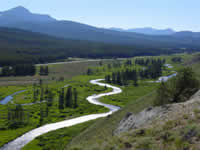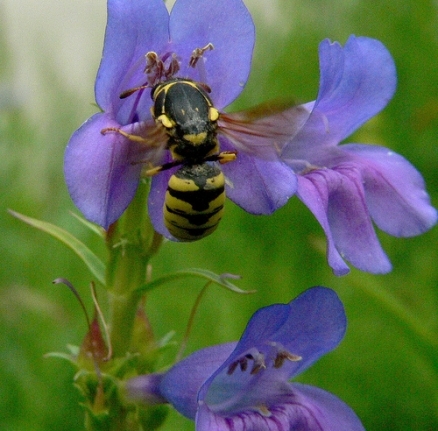Environmental benefits of pollination
Environmental Benefits of Pollination
 Mountain Valley Scene. Source: U.S. Forest Service; Credit: James Henderson.
Mountain Valley Scene. Source: U.S. Forest Service; Credit: James Henderson. The U.S. Forest Service recognizes the following environmental benefits of pollination:
- ===Clean Air (Carbon Cycling/Sequestration)===
Flowering plants produce breathable oxygen by utilizing the carbon dioxide produced by plants and animals as they respire. Levels of carbon dioxide in the atmosphere have been rapidly increasing in the last century, however, due to increased burning of fossil fuels and destruction of vital forests, the “earth’s lungs.” Pollinators are key to reproduction of wild plants in our fragmented global landscape. Without them, existing populations of plants would decline, even if soil, air, nutrients, and other life-sustaining elements were available.
- ===Water and Soils===
Flowering plants help to purify water and prevent erosion through roots that holds the soil in place, and foliage that buffers the impact of rain as it falls to the earth. The water cycle depends on plants to return moisture to the atmosphere, and plants depend on pollinators to help them reproduce.
Reference
- Flowering Plants, Pollinators, and the Health of the Planet (Marinelli, 2005): Plant. 2005. Janet Marinelli, Editor in Chief. First American Edition. Dorling Kindersley Limited (DK Publishing, Inc.). New York. 512 Pages.
